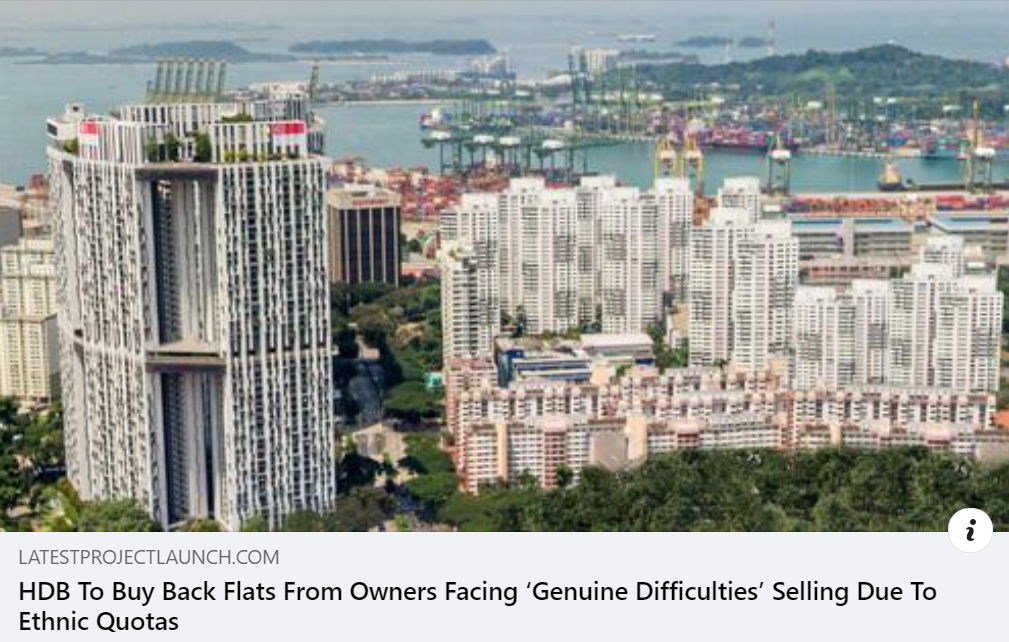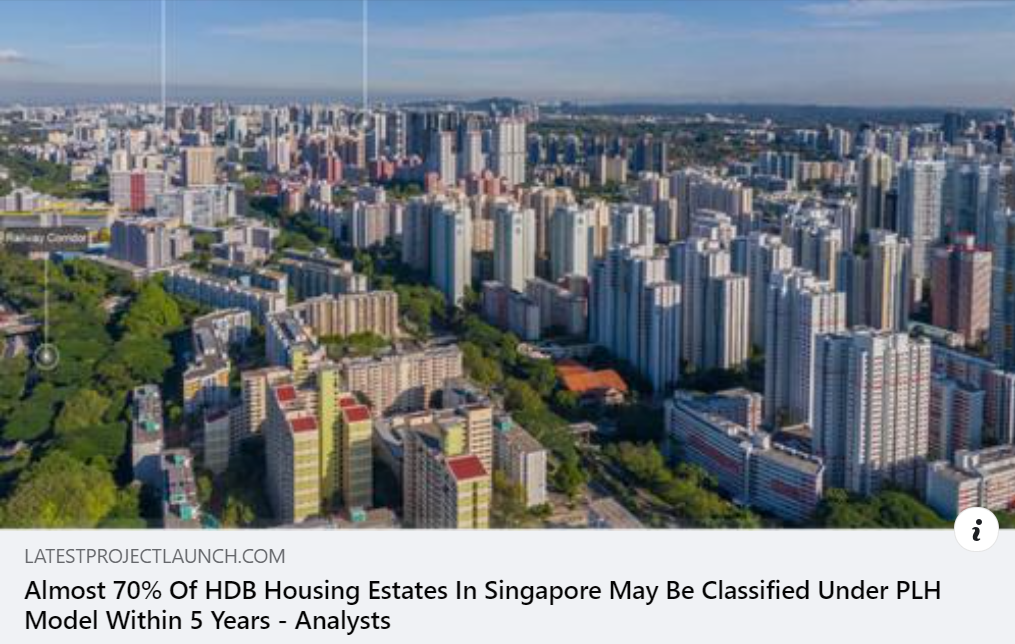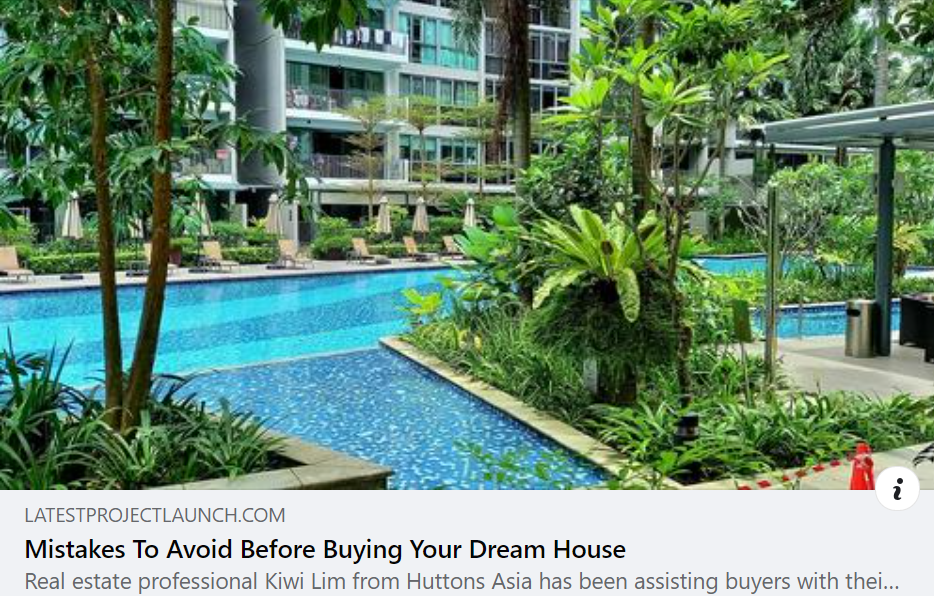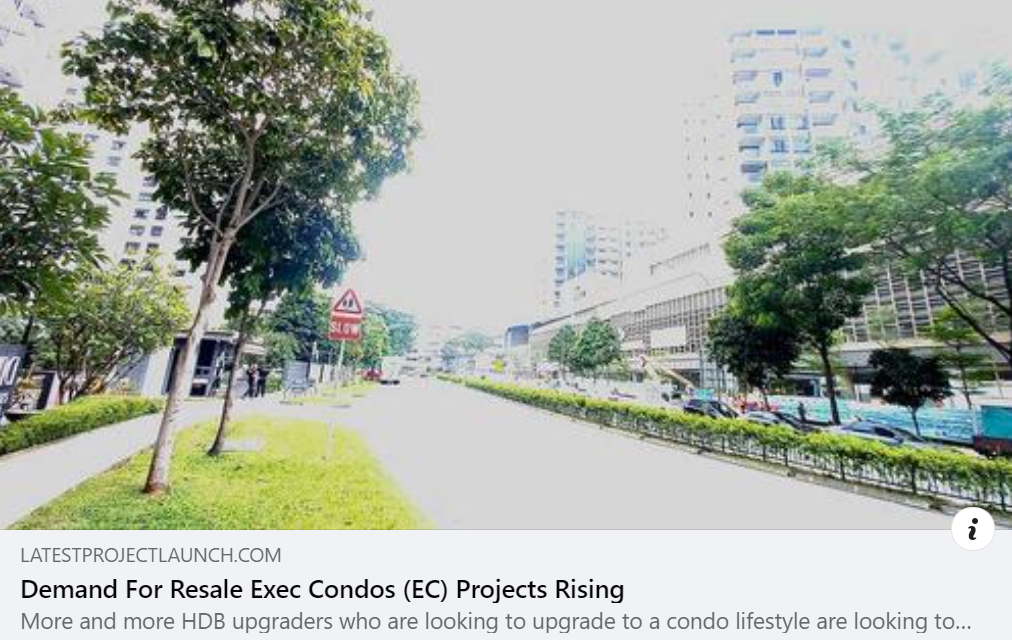Many factors influence the process of inheriting a Housing and Development Board (HDB) flat and it can be a complicated and confusing experience. Two important factors are whether the deceased had a valid will and whether the HDB flat has other owners. Whether you currently own a property or another HDB flat may also affect the process of inheriting a HDB flat. Another scenario to consider is when you are the co-owner of an HDB flat, and the other owner passes away. You need to understand HDB inheritance rules and the implications on your ownership to organise and protect your affairs.
There are restrictions on the transfer of HDB flats, which include rules on minimum occupation period, ethnic integration policy, and Singapore permanent resident quota. These restrictions may affect the transfer of the HDB flat to the beneficiaries.
Only Singapore citizens or permanent residents are eligible to inherit an HDB flat. If a foreigner inherits an HDB flat, they will have to dispose of the flat within a year of inheriting it. Let's discuss inheritance law around HDB flats and answer some of your questions below:
There are restrictions on the transfer of HDB flats, which include rules on minimum occupation period, ethnic integration policy, and Singapore permanent resident quota. These restrictions may affect the transfer of the HDB flat to the beneficiaries.
Only Singapore citizens or permanent residents are eligible to inherit an HDB flat. If a foreigner inherits an HDB flat, they will have to dispose of the flat within a year of inheriting it. Let's discuss inheritance law around HDB flats and answer some of your questions below:
Religion and HDB inheritance
Religion may affect the inheritance of HDB flats. The laws vary for Muslims and non-Muslims. If the deceased is Muslim and there is no will, the flat will be dealt with under Syariah Law Faraid. If there is a will, the owner can only bequeath 1/3rd of the property. The court will distribute the remaining 2/3rd of the interest in the flat, according to Faraid.
If the owner is non-Muslim and there is no will, the ownership of the HDB flat will be dealt with under the Intestate Succession Act. The Act defines how HDB ownership is dealt with without a will. A relative or a beneficiary can approach the court to be appointed as the trustee to oversee the process.
Inheritance may cause a lot of conflict amongst surviving family members or co-owners, if there is a will, the will must be proved and executed under probate. The appointed trustee or executor will oversee the process following the Probate and Administration Act.
Types of ownership and HDB inheritance
It might be easier to refer to specific scenarios to explain how types of ownership affect HDB Inheritance.
Sole ownership
If you are a non-Muslim sole owner of the flat and have no will, the flat will be sold and the proceeds divided between your spouse and your children. Your spouse will get 50%, and the remaining 50% will be divided equally among your children.
If you have no surviving spouse or surviving parents but have children, they will inherit the flat in equal portions.
If you are not married and have no children, but your parents are still alive, they will inherit the flat in equal portions.
If you are single with no living family, the flat will go back to the government.
The situation can be more complicated if the flat is co-owned. There are two types of co-ownership. First, it is essential to establish if the flat is owned under a joint tenancy or tenancy-in-common.
Joint tenancy
A joint tenancy means all the co-owners have an equal share in the flat. If the deceased owner of the HDB flat was a joint tenant with his or her spouse, the surviving spouse will automatically inherit the flat under the Right of Survivorship. This means that the flat will not be distributed according to the ISA. If one of the co-owners passes away, their interest is automatically passed to the remaining eligible owners. The co-owner must be a Singapore citizen or a permanent resident, and at least 21 years old to be eligible. It does not matter if the deceased had a will or not. A joint tenancy will override the will.
Tenancy-in-common
Under a tenancy-in-common, each owner has a separate interest in the HDB flat. These days, this is the most common scenario when the current generation obtain HDB flats. If one of the owners passes away, their share of the ownership is transferred based on inheritance laws. It will not automatically transfer to the remaining owners. If there is a will, it will be distributed to the beneficiaries as set out in the will. If there is no will, the provisions of the Intestate Succession Act will apply to the deceased’s share in the ownership.
It might be easier to refer to specific scenarios to explain how types of ownership affect HDB Inheritance.
Sole ownership
If you are a non-Muslim sole owner of the flat and have no will, the flat will be sold and the proceeds divided between your spouse and your children. Your spouse will get 50%, and the remaining 50% will be divided equally among your children.
If you have no surviving spouse or surviving parents but have children, they will inherit the flat in equal portions.
If you are not married and have no children, but your parents are still alive, they will inherit the flat in equal portions.
If you are single with no living family, the flat will go back to the government.
The situation can be more complicated if the flat is co-owned. There are two types of co-ownership. First, it is essential to establish if the flat is owned under a joint tenancy or tenancy-in-common.
Joint tenancy
A joint tenancy means all the co-owners have an equal share in the flat. If the deceased owner of the HDB flat was a joint tenant with his or her spouse, the surviving spouse will automatically inherit the flat under the Right of Survivorship. This means that the flat will not be distributed according to the ISA. If one of the co-owners passes away, their interest is automatically passed to the remaining eligible owners. The co-owner must be a Singapore citizen or a permanent resident, and at least 21 years old to be eligible. It does not matter if the deceased had a will or not. A joint tenancy will override the will.
Tenancy-in-common
Under a tenancy-in-common, each owner has a separate interest in the HDB flat. These days, this is the most common scenario when the current generation obtain HDB flats. If one of the owners passes away, their share of the ownership is transferred based on inheritance laws. It will not automatically transfer to the remaining owners. If there is a will, it will be distributed to the beneficiaries as set out in the will. If there is no will, the provisions of the Intestate Succession Act will apply to the deceased’s share in the ownership.
The process of HDB inheritance
There are several issues to consider when one of the owners of an HDB flat passes away. This is just a brief overview of the process. The beneficiaries should engage a lawyer as soon as possible to ensure compliance with all the inheritance processes.
If a joint tenancy owner passes away, the remaining owner must lodge a Notice of Death with the Singapore Land Authority (SLA). This can be done with the help of the Housing and Development Board or directly at the SLA. When lodging the Notice of Death, the remaining owner must include all the required documents, including the Death Certificate. The Notice of Death must comply with all the legal requirements. It must be typed, printed, and witnessed by a witness at least 21 years old.
If the deceased owned the property under a tenancy-in-common, the deceased’s family should approach a lawyer to obtain a Grant of Probate.
If the deceased died without a will, a lawyer must apply to the court for a Grant of Letters of Administration. After obtaining the legal authority from the court to manage the estate, the executor or administrator must register their legal right to do so. The application must include original copies of the Grant of Letters of Administration or the Grant of Probate, as well as the will. The original Syariah Court Inheritance Certificate must be included in the application process for Muslim estates. After complying with all the requirements, the interest in the HDB flat can be transferred to the new owners.
There are several issues to consider when one of the owners of an HDB flat passes away. This is just a brief overview of the process. The beneficiaries should engage a lawyer as soon as possible to ensure compliance with all the inheritance processes.
If a joint tenancy owner passes away, the remaining owner must lodge a Notice of Death with the Singapore Land Authority (SLA). This can be done with the help of the Housing and Development Board or directly at the SLA. When lodging the Notice of Death, the remaining owner must include all the required documents, including the Death Certificate. The Notice of Death must comply with all the legal requirements. It must be typed, printed, and witnessed by a witness at least 21 years old.
If the deceased owned the property under a tenancy-in-common, the deceased’s family should approach a lawyer to obtain a Grant of Probate.
If the deceased died without a will, a lawyer must apply to the court for a Grant of Letters of Administration. After obtaining the legal authority from the court to manage the estate, the executor or administrator must register their legal right to do so. The application must include original copies of the Grant of Letters of Administration or the Grant of Probate, as well as the will. The original Syariah Court Inheritance Certificate must be included in the application process for Muslim estates. After complying with all the requirements, the interest in the HDB flat can be transferred to the new owners.
What if the beneficiary already owns private property?
Suppose the beneficiary of the deceased already owns private property. In that case, it will depend on the date the inherited HDB flat was bought by the deceased. If the deceased bought the flat before 30 August 2010, the beneficiary may keep both the private property and the HDB flat. There are conditions, however:
If the deceased bought the flat on or after 30 August 2010, the beneficiary may only keep one of the properties.
What if the beneficiary already owns a HDB flat?
A person can only own an interest in one HDB flat at a time. If the beneficiary already owns an interest in an HDB flat, they will have to sell their interest in one of the two HDB flats. This applies even if you only have partial ownership in an HDB flat.
What if the beneficiary already owns commercial property?
The beneficiary can keep the HDB flat provided that the commercial property does not include a residential component.
Suppose the beneficiary of the deceased already owns private property. In that case, it will depend on the date the inherited HDB flat was bought by the deceased. If the deceased bought the flat before 30 August 2010, the beneficiary may keep both the private property and the HDB flat. There are conditions, however:
- the beneficiary must be eligible to own an HDB flat; and
- the beneficiary and their family must live in the HDB flat.
If the deceased bought the flat on or after 30 August 2010, the beneficiary may only keep one of the properties.
- If the beneficiary decides to keep the HDB flat, they must live in it and sell the private property within six months.
- If the beneficiary decides to keep the private property, they must sell the HDB flat within six months (if the minimum occupation period is completed). If the minimum occupation period is not completed yet, the HDB officer will assist the beneficiaries.
What if the beneficiary already owns a HDB flat?
A person can only own an interest in one HDB flat at a time. If the beneficiary already owns an interest in an HDB flat, they will have to sell their interest in one of the two HDB flats. This applies even if you only have partial ownership in an HDB flat.
- If the beneficiary decides to keep the inherited HDB flat, they must sell the other HDB flat within six months from inheriting the HDB flat. The beneficiary must be eligible to own the inherited flat, i.e., an immediate family member of the deceased and at least 21 years old.
- If the beneficiary decides to keep their existing HDB flat, they need to sell the inherited HDB flat within six months. If the minimum occupation period has not been met, the beneficiary will have to approach the HDB to assist before the flat can be sold.
What if the beneficiary already owns commercial property?
The beneficiary can keep the HDB flat provided that the commercial property does not include a residential component.
Can a minor inherit a HDB flat?
Yes, a minor can inherit a HDB flat under the deceased’s final will or under section 7 of the Intestate Succession Act if there is no will. While a minor has the capacity to hold land, a minor or child under 21 years old does not have the legal capacity to contract in any Sale and Purchase of any land (see section 35(4)(a) of the Civil Law Act). As such, the surviving parent or guardian named in the will may manage the minor’s inheritance until the child turns 21 years old. The HDB flat (or the minor beneficiary’s share in the sale proceeds) may also be held on trust by the Executors or Administrators of the deceased’s estate.
How long does it take to sell a HDB flat after death?
A surviving joint tenant will become the sole absolute owner of the HDB flat upon the other joint tenant’s death and after lodging a Notice of Death with the Singapore Land Authority (SLA). The surviving joint tenant may then sell the HDB flat anytime on the open market if he or she wishes to, subject to the Minimum Occupation Period (MOP) and other requirements stipulated by HDB that may have to be met before the flat can be sold off.
Valid will
If the deceased owner of the HDB flat left behind a will, the flat will be distributed according to the instructions in the will. For other manners of holding, if there is a valid will, the HDB flat will automatically vest in the Executor named in the deceased’s will and the Executor’s powers are derived from the will (see Lee Han Tiong v Tay Yok Swee [1996] SGHC 176 at paragraph [5]). However, the Executor must still apply for and obtain a Grant of Probate from the court to deal with the deceased’s estate to fruition (see Re Ong Soon Chuan [1999] SGHC 125 at paragraph [5]) and the process may take time. The will should name the beneficiaries of the HDB flat and the proportion of the flat each beneficiary will receive.
No will
If the deceased owner of the HDB flat did not leave behind a will, the flat will be distributed according to the Intestate Succession Act (ISA). The ISA specifies the order of priority for distribution of assets, which includes the HDB flat.
If there is no will, sections 37(1) and 37(4) of the Probate and Administration Act (PAA) provide that the deceased’s real and personal estate (including the HDB flat) will vest in the Public Trustee between the death and the grant of a Letter of Administration. Applying for a Grant of Letter of Administration is lengthier and more complicated than applying for a Grant of Probate. Much will also depend on whether there is a caveat lodged against the HDB flat under section 33 of the Probate and Administration Act. A caveat will only be lifted if the creditors and/or beneficial owners are satisfied with the undertaking from the Administrator or Executor (as the case may be) to settle the estate debts and liabilities. Until then, the court will not issue the Grant of Letter of Administration or Grant of Probate. This means the HDB flat cannot be sold and the sale proceeds cannot be distributed to the beneficiaries until the issue in dispute has been settled. This may take a longer time if the contentious probate is referred to the courts for resolution.
The need to get your estate planning right from the start before your death, as well as the need to ensure compliance with all the inheritance processes when a loved one passes away make it all the more important to engage a specialist lawyer.
Yes, a minor can inherit a HDB flat under the deceased’s final will or under section 7 of the Intestate Succession Act if there is no will. While a minor has the capacity to hold land, a minor or child under 21 years old does not have the legal capacity to contract in any Sale and Purchase of any land (see section 35(4)(a) of the Civil Law Act). As such, the surviving parent or guardian named in the will may manage the minor’s inheritance until the child turns 21 years old. The HDB flat (or the minor beneficiary’s share in the sale proceeds) may also be held on trust by the Executors or Administrators of the deceased’s estate.
How long does it take to sell a HDB flat after death?
A surviving joint tenant will become the sole absolute owner of the HDB flat upon the other joint tenant’s death and after lodging a Notice of Death with the Singapore Land Authority (SLA). The surviving joint tenant may then sell the HDB flat anytime on the open market if he or she wishes to, subject to the Minimum Occupation Period (MOP) and other requirements stipulated by HDB that may have to be met before the flat can be sold off.
Valid will
If the deceased owner of the HDB flat left behind a will, the flat will be distributed according to the instructions in the will. For other manners of holding, if there is a valid will, the HDB flat will automatically vest in the Executor named in the deceased’s will and the Executor’s powers are derived from the will (see Lee Han Tiong v Tay Yok Swee [1996] SGHC 176 at paragraph [5]). However, the Executor must still apply for and obtain a Grant of Probate from the court to deal with the deceased’s estate to fruition (see Re Ong Soon Chuan [1999] SGHC 125 at paragraph [5]) and the process may take time. The will should name the beneficiaries of the HDB flat and the proportion of the flat each beneficiary will receive.
No will
If the deceased owner of the HDB flat did not leave behind a will, the flat will be distributed according to the Intestate Succession Act (ISA). The ISA specifies the order of priority for distribution of assets, which includes the HDB flat.
If there is no will, sections 37(1) and 37(4) of the Probate and Administration Act (PAA) provide that the deceased’s real and personal estate (including the HDB flat) will vest in the Public Trustee between the death and the grant of a Letter of Administration. Applying for a Grant of Letter of Administration is lengthier and more complicated than applying for a Grant of Probate. Much will also depend on whether there is a caveat lodged against the HDB flat under section 33 of the Probate and Administration Act. A caveat will only be lifted if the creditors and/or beneficial owners are satisfied with the undertaking from the Administrator or Executor (as the case may be) to settle the estate debts and liabilities. Until then, the court will not issue the Grant of Letter of Administration or Grant of Probate. This means the HDB flat cannot be sold and the sale proceeds cannot be distributed to the beneficiaries until the issue in dispute has been settled. This may take a longer time if the contentious probate is referred to the courts for resolution.
The need to get your estate planning right from the start before your death, as well as the need to ensure compliance with all the inheritance processes when a loved one passes away make it all the more important to engage a specialist lawyer.
It is important to note that the above rules may be subject to changes, and it is recommended to consult with a legal professional for specific advice regarding HDB inheritance. Should you require legal representation, you may contact PKWA Law





